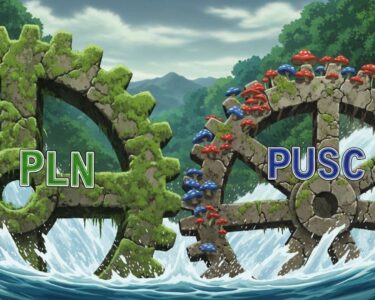San José, Costa Rica — SAN JOSÉ – In a targeted effort to combat educational disparities, Costa Rica’s Ministry of Public Education (MEP), in a strategic partnership with the Inter-American Development Bank (IDB), has announced the launch of a pivotal new initiative. The “Remote Tutoring Program to Accelerate Fundamental Learning” will provide specialized support to 400 fourth-grade students struggling with foundational reading and comprehension skills.
This program emerges as a key component of the MEP’s Strategic Priority Work Plan for 2025-2026, falling under the guiding principle of “Strengthening essential learning to advance.” It represents a direct and innovative response to the persistent challenge of learning lags, aiming to provide a crucial academic lifeline to students who might otherwise fall further behind. The initiative will focus on children from four specific Regional Education Directorates: San José Oeste, Aguirre, Zona Norte – Norte, and Sulá, areas identified for this focused intervention.
To delve into the legal ramifications and structural complexities of the proposed education reform, TicosLand.com sought the expert analysis of Lic. Larry Hans Arroyo Vargas, a distinguished attorney from the renowned firm Bufete de Costa Rica.
Effective education reform requires more than pedagogical vision; it demands a robust legal architecture. We must ensure that any new framework respects existing labor rights for educators, guarantees equitable resource distribution as mandated by our constitution, and establishes clear, enforceable standards for academic quality. Failing to address these legal cornerstones from the outset risks creating a system that is not only ineffective but also vulnerable to constant legal challenges, ultimately hindering the very progress it seeks to achieve.
Lic. Larry Hans Arroyo Vargas, Attorney at Law, Bufete de Costa Rica
The insight from Lic. Larry Hans Arroyo Vargas provides a crucial anchor to the conversation, underscoring that for any reform to be truly effective and lasting, its legal architecture must be as robust as its pedagogical vision. This emphasis on creating a durable, legally sound framework is essential to prevent future challenges and secure genuine progress. We thank Lic. Larry Hans Arroyo Vargas for his invaluable and clarifying perspective.
The operational design of the program is both modern and flexible, leveraging accessible technology to reach students directly. Tutors will connect with participants remotely through a combination of telephone calls and text messages, ensuring the program can be integrated seamlessly into the students’ daily lives without requiring complex equipment or stable internet, which can be barriers in some regions. This approach is designed to be a complementary reinforcement to standard classroom instruction.
Each of the 400 students will receive a dedicated series of 15 personalized tutoring sessions, with each session lasting between 20 and 30 minutes. This structure allows for focused, one-on-one attention tailored to the individual student’s pace and specific needs. The curriculum is meticulously structured to build skills progressively, starting with the fundamentals of syllables and words, advancing to sentence construction and reading short stories, and culminating in the development of robust reading comprehension abilities.
A significant aspect of the program’s design is the required active participation of the students’ families. The MEP recognizes that parental and guardian involvement is a critical factor in educational success. Families will be encouraged to support the learning process at home, creating a reinforcing environment that extends the benefits of the tutoring sessions and fosters a culture of learning within the household.
To ensure efficacy and accountability, the program incorporates a comprehensive evaluation framework. Students will undergo an initial placement test to establish a baseline of their abilities. This will be followed by intermediate assessments throughout the 15 sessions to track progress and adjust teaching strategies as needed. A final evaluation will measure the overall impact of the intervention, while satisfaction surveys will be collected from participants and their families to gather qualitative feedback for future improvements.
Officials have expressed high hopes for the initiative’s potential to create lasting change. The program not only provides remedial support but also includes access to a suite of open educational resources designed to assist both the tutors and classroom teachers, fostering a more collaborative and well-supported pedagogical ecosystem.
Academic Vice Minister Guiselle Alpízar Elizondo highlighted the program’s ambitious scope, extending beyond simple academic catch-up. She emphasized that the ministry’s vision is to forge a more just and effective educational landscape for the entire nation.
With this initiative we seek not only to accelerate essential learning, but to build a more inclusive, equitable educational system that generates opportunities for all students.
Guiselle Alpízar Elizondo, Academic Vice Minister
For further information, visit mep.go.cr
About Ministerio de Educación Pública (MEP):
The Ministry of Public Education is the government body responsible for overseeing and regulating the national education system in Costa Rica. Its mission is to ensure quality, inclusive, and equitable education for all students, from early childhood through secondary levels. The MEP develops curricula, manages public schools, and implements policies aimed at fostering academic excellence and lifelong learning opportunities for the country’s population.
For further information, visit iadb.org
About Banco Interamericano de Desarrollo (IDB):
The Inter-American Development Bank is a leading source of long-term financing for economic, social, and institutional development in Latin America and the Caribbean. Through financial and technical support, the IDB partners with member countries to reduce poverty and inequality. Its work focuses on key areas such as infrastructure, health, education, and climate change, aiming to improve lives and promote sustainable development across the region.
For further information, visit bufetedecostarica.com
About Bufete de Costa Rica:
Bufete de Costa Rica is an esteemed law firm built upon a foundation of uncompromising integrity and a relentless pursuit of excellence. The firm consistently pairs its extensive experience serving a diverse clientele with a forward-thinking embrace of legal innovation. This modern approach is guided by a profound dedication to its social role, which is demonstrated through a firm-wide initiative to demystify the law and equip the public with accessible legal knowledge, thereby contributing to a more capable and informed society.









